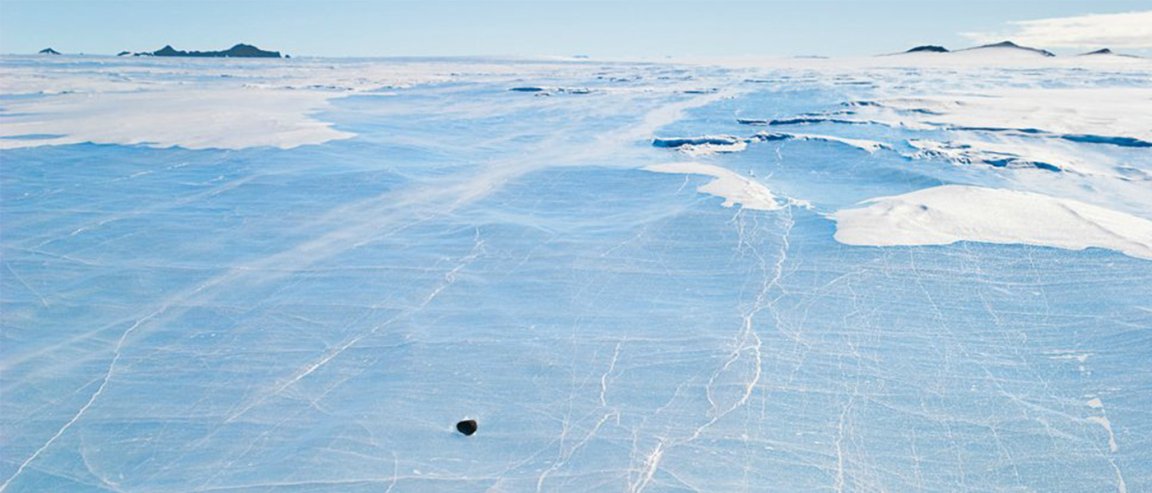
The Origins of Life
A UK-led team from the University of Manchester is headed to Antartica in hopes of finding ‘lost’ meteorites that could provide clues to how life started on Earth. Meteorites give researchers an opportunity to study and understand how the solar system was formed. Iron meteorites, formed from the cores of planetesimals (small planets destroyed by planetary impact), could even give insight into how plants are created.

Because it is sheathed in snow and ice, the region provides a stark contrast for dark meteorites that end up on Earth. But to date, very few of these iron-based meteorites have been found. The team leading the expedition believes that more iron meteorites are somewhere just beneath the Antarctic surface –because of its composition, the ice melts faster around iron-rich rocks versus non-metallic meteorites, causing them to sink and get trapped under the ice.
This theory was enough to grant a team of researchers funding to develop some kind of advanced metal-detecting technology to be used in the first ever UK-led Antarctic meteorite expedition for 2020.
“[…] The continent constantly reveals so many secrets about our Earth such as our past climate from ice and sediment cores so it’s great to work with UK researchers to help them solve another puzzle about Earth’s, and our Solar System’s, formation,” said Professor David Vaughan, Director of Science at British Antarctic Survey, who will be working with the team.
Challenges Abound
The expedition will cover three different sites across the continent. What makes it particularly difficult is the distance of each site from the nearest research stations—meaning the team will have to conduct work amid freezing temperatures, and gale-force winds on a difficult terrain.
The team however, is looking forward to the challenge. Proposals for such an expedition premised on this hypothesis has been in discussion as far back as 2012.
“We now have the opportunity to commence on a truly exciting scientific adventure. If successful, our expeditions will help scientists to decode the origins of the Solar System and cement the UK as a leader in meteoritics and planetary science,” said Dr. Geoffrey Evatt who heads the team of multidisciplinary researchers preparing for the trek.
A preliminary visit to Antarctica is scheduled for 2019 where the team can study the terrain for their 2020 main expedition. Prior to this, a smaller, test mission will be conducted on the Arctic island of Svalbard, hopefully by 2018.